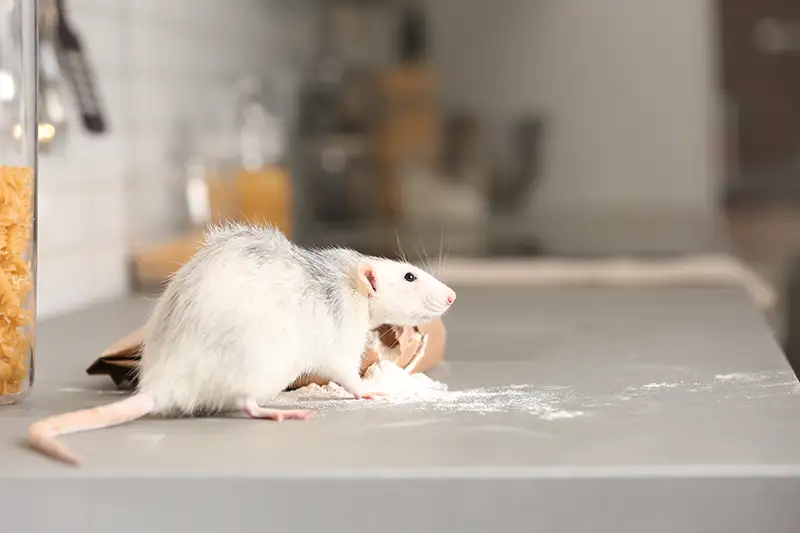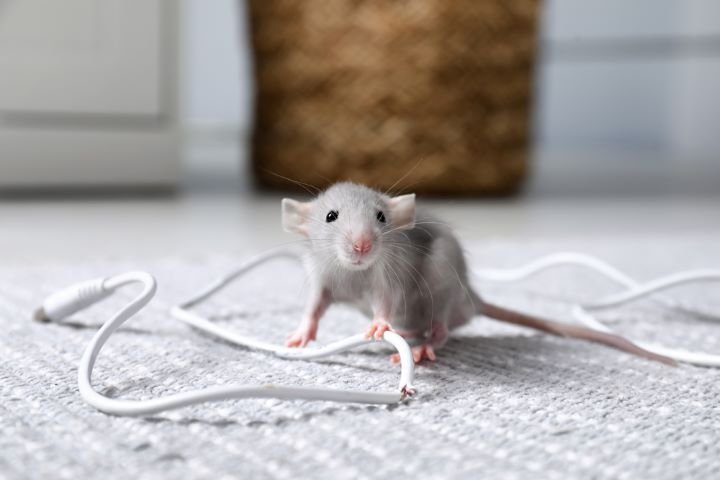The thought of rats scuttling through your walls or invading your pantry is enough to cause nightmares for many homeowners. Keeping rats out of your home is not only crucial for maintaining peace of mind but also for ensuring a healthy living environment. Rats are notorious for spreading diseases, causing damage, and multiplying at alarming rates. In the following guide, we'll delve into effective strategies to prevent these unwelcome guests from making your home their own.

The Importance of Rat Prevention
Understanding why it's essential to keep rats out is the first step in your defense strategy. These pesky rodents are not just a nuisance; they pose significant health risks. Diseases such as leptospirosis, hantavirus, and salmonella can be transmitted through rat urine, droppings, and bites, making it crucial to implement preventive measures.
Effective Strategies for Keeping Rats Out of Your Home
Seal Entry Points
Rats can enter your home through surprisingly small gaps and crevices. Conduct a thorough inspection of your home's exterior, looking for any potential entry points. Seal cracks and crevices with caulking or steel wool, focusing on areas around pipes, vents, and doors. Regular maintenance and vigilance in sealing new holes contribute significantly to keeping your home rat-free. Learn more about effective pest prevention strategies that can help.
Maintain Cleanliness
One of the simplest yet most effective ways to deter rats is by maintaining a clean living environment. Ensure that food is stored in airtight containers, and promptly clean up crumbs and spills. Regularly take out the trash and use bins with secure lids to prevent rats from foraging. Learn more about maintaining a pest-free home.
Remove Outdoor Attractions
Rats are often drawn to outdoor areas close to homes. Keep your yard tidy by trimming shrubs and grass, and remove debris that could serve as a hiding spot. Store firewood and other attractive nesting materials away from your home's exterior.
Natural and Chemical Deterrents
Utilize Natural Repellents
Several natural deterrents can help keep rats at bay. Peppermint oil, used tea bags, or a mixture of vinegar and water can be sprayed around entry points. These strong scents act as a repellent, deterring rats from entering your home.
Consider Traps and Baits
If prevention alone isn't effective, you may need to resort to traps and baits. Select from a range of humane traps or bait stations, following safety guidelines. For more on effective pest control strategies, visit Family Handyman's pest control guide.
Dealing with an Infestation
If you suspect a rat infestation, time is of the essence. Quick action can prevent further damage and health risks. Many signs can indicate an infestation, including droppings, gnaw marks, and strange noises.
Seeking Professional Help
Sometimes, the scale of an infestation requires professional intervention. Pest control experts can assess the situation thoroughly and suggest the most effective treatment plan. Read more on how professionals handle pest infestations efficiently.
Conclusion: Guarding Your Home Against Rats
Keeping rats out of your home involves a combination of vigilance, cleanliness, and strategic prevention. By understanding the risks and implementing comprehensive prevention strategies, you can protect your home and family from the dangers posed by these unwelcome invaders. For long-term success, stay informed with the latest in pest management solutions available at TrapX.

FAQ
How can I tell if I have a rat problem?
Signs of a rat problem include droppings, gnaw marks, nesting materials, and unusual noises. Inspect common hiding and entry spots in your home regularly.
What are some natural remedies to repel rats?
Natural repellents include peppermint oil, ammonia, and used tea bags. Sprinkling these substances around potential entry points can deter rats from entering.
When should I call a professional pest controller?
If you notice widespread signs of infestation or if your prevention strategies aren't effective, it's time to contact a professional for a thorough evaluation and treatment plan.
This article contains affiliate links. We may earn a commission at no extra cost to you.
